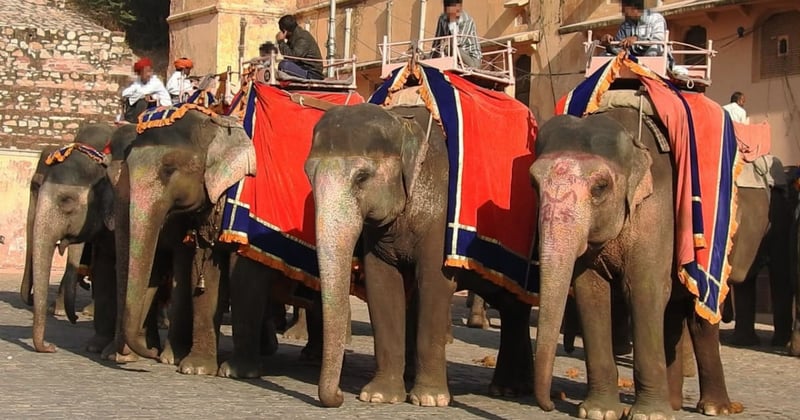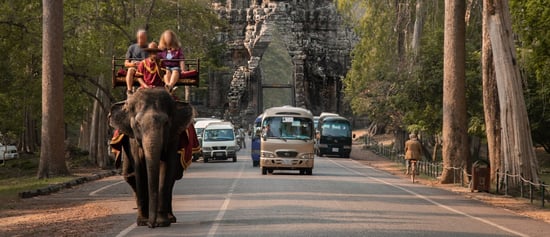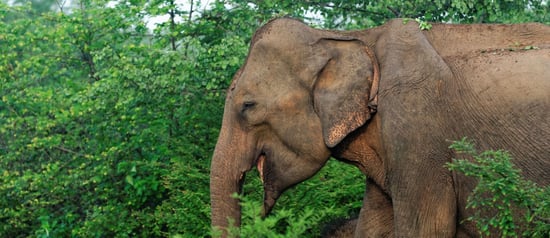
Victory for 20 sick elephants at Amer Fort in India
News
The Forest Department of Rajasthan in India has finally ordered 20 severely sick elephants to be retired.
Victory for elephants: after years of our campaigning to phase out elephant riding at Amer Fort in India, the Forest Department of Rajasthan has finally ordered for 20 severely sick elephants to be retired.
Following veterinary inspections of the elephants in July 2020, the department declared that on medical and moral grounds, the sick and unfit animals should no longer be used for entertainment purposes, which is a progressive step forward.
India’s Amer Fort is an iconic site, attracting thousands of tourists every year. The fort has over 100 working elephants, that were forced to carry tourists up and down the steep paved floors to the fort until the pandemic hit. Each elephant completed this hot and unpleasant journey multiple times a day, carrying numerous passengers. They are controlled using bullhooks and live in severely inadequate conditions.
World Animal Protection has been putting pressure on the local authorities to retire the elephants at the venue, not only because of the cruelty involved but also because many are in dire need of medical help.
In fact:
- 10 elephants have tuberculosis
- 62 have blood problems
- 19 are blind
- Most are malnourished
- All 102 have foot problems
The tourism industry is in a unique position to build back tourism the right way, by phasing out captive wild animals used for entertainment, and instead using humane alternatives such as electric or battery-operated vehicles. The elephants could be retired to genuine sanctuaries which also offer observation-only tourism opportunities for ethical travellers and the growing movement of people that are turning their backs on cruel elephant rides.
Nick Stewart, Head of Campaign – Animals in the Wild, World Animal Protection said:
“These elephants have had hard lives. They would have begun life by being ripped away from their mothers at a young age and then cruelly trained to make them submissive enough to ride. After this, their everyday life would be strenuous - having to walk up and down on the hard surfaces of the Fort each day with tourists on their backs, and then being kept in inadequate conditions where they would be unable to express themselves naturally.
“We are delighted that around 20 of them are finally being retired from this awful life of captivity, but we will not give up until elephant riding is a thing of the past. Elephants are wild animals – not entertainers.”
World Animal Protection is calling on everyone, from travelers to tour operators, to take responsibility and put an end to the exploitation of wild animals forever – less demand will mean less elephant suffering.
These elephants have had hard lives. They would have begun life by being ripped away from their mothers at a young age and then cruelly trained to make them submissive enough to ride. After this, their everyday life would be strenuous - having to walk up and down on the hard surfaces of the Fort each day with tourists on their backs, and then being kept in inadequate conditions.
Elephant rides
Today, more than 3,000 elephants are being used and abused to entertain tourists and visitors across Asia.
Our wildlife work
Around the world, wild animals are being exploited. They’re hunted down, trapped and farmed in captivity, all to be sold and abused for entertainment, medicine, fashion, pets and products.



